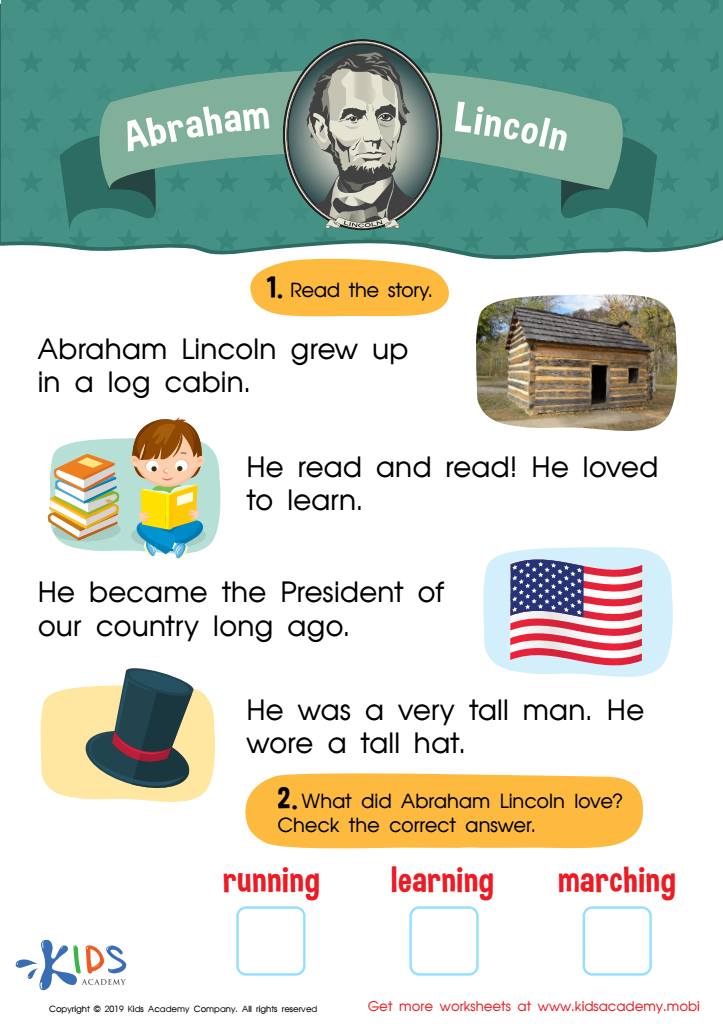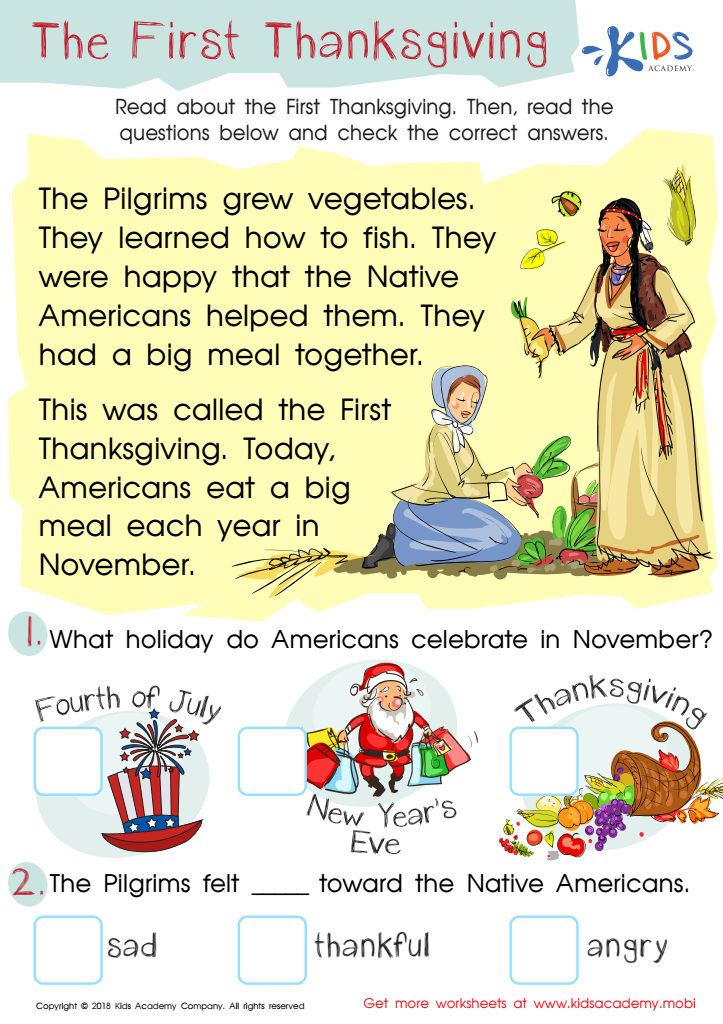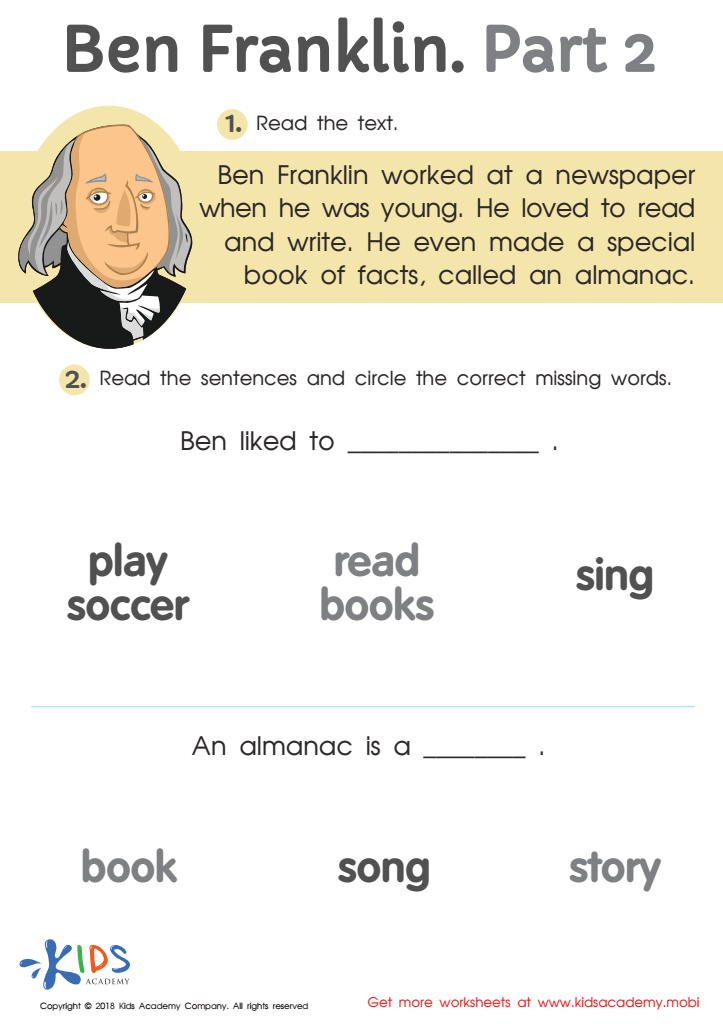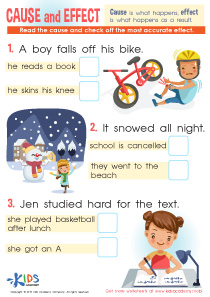Historical Knowledge Normal Reading Non-Fiction Worksheets for Ages 4-8
5 filtered results
-
From - To
Discover our engaging "Historical Knowledge Normal Reading Non-Fiction Worksheets for Ages 4-8," designed to spark curiosity and enhance learning! Tailored for young learners, these worksheets offer a fun way to explore important historical events and figures while developing essential reading skills. Each worksheet features age-appropriate content, visually appealing designs, and interactive activities that nurture a child's understanding of history. From learning about ancient civilizations to notable personalities, our resources foster critical thinking and comprehension in a lively manner. Perfect for classrooms or at-home learning, instill a love of history in your child today with our exciting non-fiction worksheets!


White House Worksheet


Benjamin Franklin Worksheet


Abraham Lincoln Worksheet


Assessment: First Thanksgiving Worksheet


Ben Franklin Part 2 Worksheet
Understanding historical knowledge through non-fiction reading is crucial for children ages 4-8 as it lays a solid foundation for their cognitive and emotional development. At this age, children are naturally curious about the world around them, and exposing them to historical events, figures, and cultures enriches their understanding of society and its complexities. It fosters critical thinking skills as they begin to compare past and present circumstances, and encourages empathy by helping them relate to experiences different from their own.
Teaching historical knowledge through engaging non-fiction books can also enhance vocabulary and comprehension skills. These texts often utilize language that is rich and varied, prompting discussions that can deepen a child's understanding of terminology and context. Furthermore, historical understanding nurtures informed citizenship; when children learn about significant events and contributions from diverse cultures, they cultivate respect and appreciation for others.
Parents and teachers are instrumental in this learning process. By selecting quality non-fiction resources and creating an encouraging environment for discussion, they can ignite a lifelong passion for learning. Nurturing historical knowledge at an early age equips children to become well-rounded individuals, fostering a love for reading that transcends mere entertainment and cultivates informed perspectives on the world.

 Assign to My Students
Assign to My Students
















